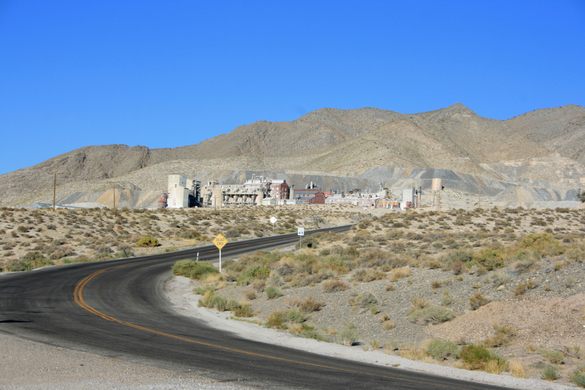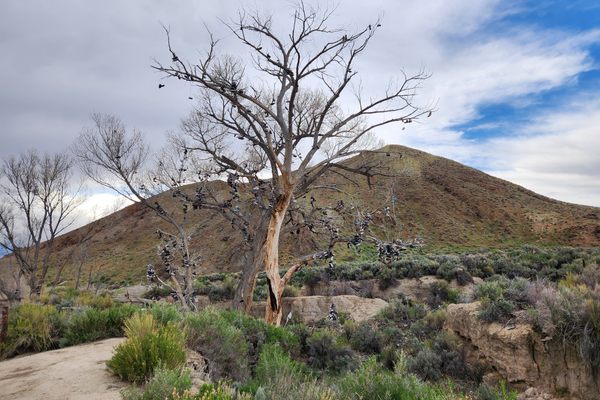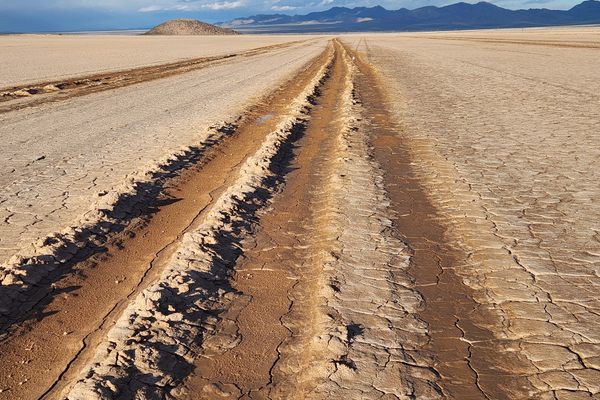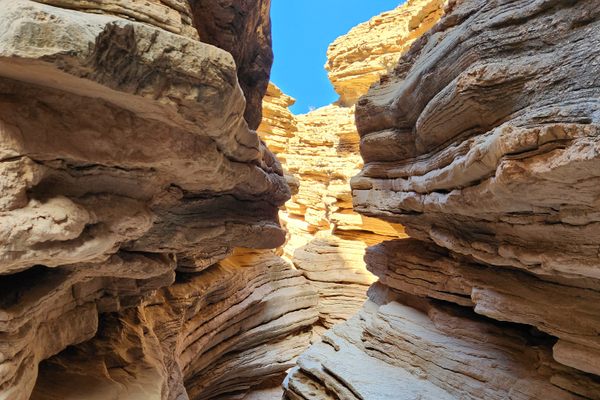Gabbs Mine
The only United States mine for magnesium carbonate has been operating continuously since the 1930s.
Magnesium-bearing deposits (magnesite, or magnesium carbonate, and brucite, or magnesium hydroxide) were discovered here in the late 1920s. The minerals are used in making refractory (high-temperature) ceramics and in chemical manufacturing, notably Epsom salts. It was a quiet niche market.
Then came World War II. High-performance aircraft were critical to the war effort, and magnesium was a key component of light, high-strength aircraft alloys. It was feared that the Axis powers were way ahead in magnesium technology. Hence a crash program for magnesium production was initiated, and it used these magnesium minerals as ore.
The raw ore minerals were shipped to a newly opened plant in Henderson, Nevada, just outside Las Vegas, for processing into magnesium metal. Hydropower was available from the newly-finished Hoover Dam, as the electrolytic process for magnesium separation requires a great deal of electricity. It’s analogous to aluminum in that respect.
The shipping route was very circuitous as there was no direct rail link. The ore was first trucked to a railhead at Luning, Nevada, some 32 miles west (the rails have since been torn up). It then went north to the transcontinental route outside Reno, eastward to Salt Lake City, and finally southwest to Las Vegas on the rail link to Los Angeles.
By 1944 enough magnesium metal—more than 80,000 tons—had been made for the wartime demand. The mine has continued producing magnesite and some brucite ever since, however, for those other applications, and is now the only producer in the United States. It is also said to be the oldest continuously operating mine in Nevada.
Know Before You Go
The mine can be viewed from the highway just north of the town of Gabbs.

















Follow us on Twitter to get the latest on the world's hidden wonders.
Like us on Facebook to get the latest on the world's hidden wonders.
Follow us on Twitter Like us on Facebook